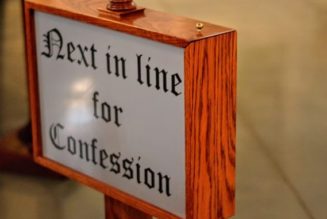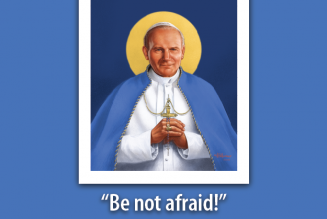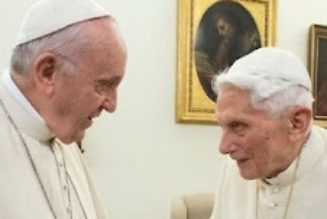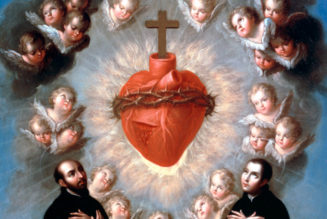 |
Many may remember the strange and shocking video “This Is America” by rapper Donald Glover, which gained much attention two years ago and is now making a comeback. The images of an America descending into hatred, madness, violence, chaos, and fear were both astute and apocalyptic. Glover was primarily making a statement about racism, but the terrifying tone of the America he paints is applicable to these days of exhausted turmoil and division, which exploded in a riot on Capitol Hill during the Electoral certification by Congress. Although the political process carried on, anger fomented and swirled.
This is America—but this isn’t American. It’s time for us to decide what it means to be American, if there is to be an America in the future. Though every American should be deeply concerned about the integrity of our precious votes—and granting that there is a time and a place for revolution—what happened in Washington, D.C. was outrageous evidence that Americans should return to the small and beautiful things that make us Americans, and that make America the nation that it must be.
To put it simply and obviously, Americans must be good if this country is to be great, and what we all saw last week were not the actions of good people. We all have to do our part in being hardworking, honest, decent folk, who live by our Faith, care for our families, and look after our neighbors. It is in these smaller circles of community and local government that the principle of subsidiarity comes into political effect to affect the federal government, the Congress, and the presidency.
Somewhere along the way, our gaze become too grand, too wide, too caught up with sides and spins and high political spheres. Taking too great of an interest in politics is an inevitable road to exasperation and peril. Our personal mood should not be impossibly linked to the national mood. Some distance is required, for by trying to put something too large in our heads—like Chesterton’s lunatic logician who tries to put the heavens into his head rather than his head into the heavens—we have lost our heads. And we may lose America next.
Catholic Senator Marco Rubio of Florida put it very well in the somber, late-night debates that followed the chaos:
I think politics has made us crazy. Everybody in the country has lost their minds on politics. We have forgotten that America is not a government. America is not a president. America is not a Congress. America is your family, your faith, and your community. That is how we are going to rebuild this country.
Also that night, Senator Mitch McConnell said, “This temple to democracy was desecrated.” It is interesting that McConnell called the Capitol a temple. It does have the largest dome for a secular structure of its time, completed just before the Civil War when fatherland and faith were more synonymous, as immortalized in “The Battle Hymn of the Republic.” But as the country has grown more secular, the more politics has become a religion and government a god. The Capitol may well be seen as a type of temple, but now may be the very time to reconsider and rediscover our sacred spaces. The Capitol is not a temple, and even though it is considered a “sacred space,” it is constantly defiled with the sacrilege of ceremonial prayers that no one really believes in—those that are often twisted into the weird vernacular of the day, such as the recent introduction of “Amen and Awomen.” It is time for Americans to call a church a temple and a Capitol a place of government business. It is time for Americans to reclaim what they actually have control over, and regain their confidence in the larger spheres of political life that such small returns will ultimately effect.
Three years into his presidency, as the nation reeled under the post-Nixon energy crisis, President James Carter delivered a speech to address what he identified as “a crisis of confidence”—a nationwide malaise in the aftershock of the murders of John F. Kennedy, Robert Kennedy, and Martin Luther King Jr., together with the Vietnam War and the Watergate scandal. “The erosion of our confidence in the future is threatening to destroy the social and the political fabric of America,” spoke President Carter in 1979. “It is a crisis that strikes at the very heart and soul and spirit of our national will. We can see this crisis in the growing doubt about the meaning of our own lives, and in the loss of a unity of purpose for our Nation.”
Though his speech was primarily directed at concerns of energy conservation, President Carter’s diagnosis of a deeper fear that was dividing the American people has deepened into a great and grim shadow. With last year’s presidential election, what Jimmy Carter said on national television four decades ago echoes with a certain prophetic paradox; the United States is crumbling under what has become a collapse of confidence. As Carter concluded, “This is not a message of happiness or reassurance, but it is the truth, and it is a warning.” Let us take heed of both the warning, and the truth. Any lack of confidence finds its source in a lack of competence. With all the agents of incompetence that have gained influence and power in the echelons of society, it is little wonder that the crisis of confidence identified by Carter has endured through good presidents and bad, only to secure renewed prominence in 2021.
With a strongarm populist president thrust out, and an empty suit of a president propped up, a Congress controlled by the Left, and an insurgent culture, many Americans—many Catholic Americans especially—have little confidence to withstand the chaos. The overwhelming and outspoken mistrust and distress over the election of Joe Biden alone signals a widespread vote of non-confidence in America, as Americans bear up under the burdens of untruth, uneasiness, and unhappiness. Without confidence, there is only confusion, which is in no short order nowadays. The chaos raging and ranging from gay “marriage,” to transgenderism, to racial tensions, to fortified abortion laws, is a force that has rendered unity of purpose a thing long lost. The crisis of confidence is past. The collapse has come, and without confidence there can be no real progress.
In the all-too-applicable words of Carter:
Confidence in the future has supported everything else—public institutions and private enterprise, our own families, and the very Constitution of the United States. Confidence has defined our course and has served as a link between generations. We’ve always believed in something called progress. We’ve always had a faith that the days of our children would be better than our own. Our people are losing that faith, not only in government itself, but also in their ability as citizens to serve as the ultimate rulers and shapers of our democracy.
That faith is lost. There can be no confidence in comatose lethargy, contentious communities, concentrated materialism, or collective atheism. The only real confidence arises from clinging to those realities that will always be true, and clearly true. The destiny of America, like any great civilization, is collapse—and its rumblings may be in the air—but there is one institution on earth whose destiny is eternity because it is not of the earth: the Catholic Church. In her is the first and last source of confidence. Faith has the greatest potential to thrive when there is little else to believe in. Hope can never be as strong as in a hopeless situation.
The warning still sounds. The truth still awaits. Our own plots of life and land lie unkempt. Faith in Church and country must re-enkindle and gain strength if confidence is to return. Let’s leave off acting like the swirling souls outside the gates of Hell in Dante’s Inferno, swept up in a mad, futile chase of a banner. We have become mere flag-chasers, and have lost touch with the ground in which a flag can be firmly planted. We must return to being devoted to the true sacred bedrock of our life and our liberty. Cultural devastation and demoralization looms. Political skepticism is rampant. Trial is the challenge of this American generation—even if it means resurrecting it from collapse. In the meantime, Catholics must lead the work of restoration by looking to their Faith, their families, their vocations, and their communities; they must tend them well. As Voltaire concluded his satire, Candide, “Let us cultivate our garden.” That is America.
[Photo Credit: Pixabay]
Join Our Telegram Group : Salvation & Prosperity









